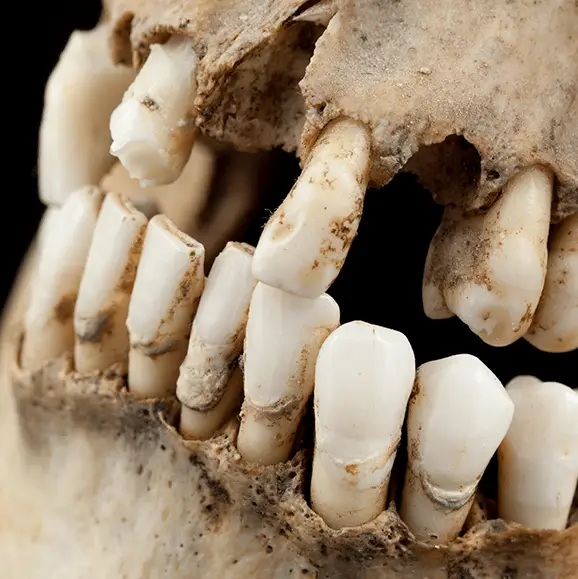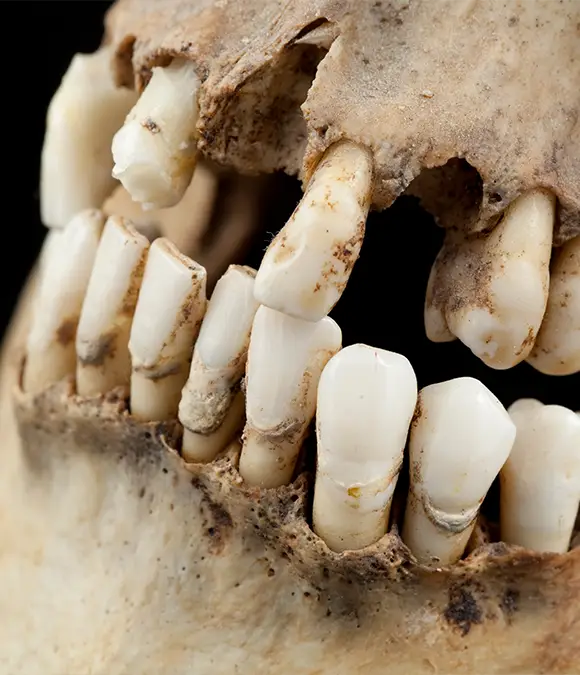
Before the days of technology and convenience in our lives, people had very different daily routines.
Today, our dental routines are quite systematic: brushing twice a day, flossing, and rinsing of mouthwash - not to mention the annual visits to the dentist to keep a shiny smile.
If we take all this away and look back in history, we can see just how resourceful our ancestors were at cleaning their pearly whites.
Firstly, it was much more of a DIY, grab-what-you-can kind of project.
Advert
Fun fact: toothpaste came before toothbrushes.
According to Frank Lippert of the Indiana University School of Dentistry: 'Around 3,000–5,000 B.C., ancient Egyptians first developed a dental cream which contained powdered ashes from oxen hooves, myrrh, egg shells and pumice.'

Later down the line, towards 1,000 B.C., Persians added 'burnt shells of snails and oysters along with gypsum, herbs and honey.'
The Romans were all about fresh breath and so, added grounded-up charcoal and tree bark into the mix.
Before the revolution of toothbrushes, people's main method of keeping their teeth clean was through chewing sticks. They would gnaw on one end of a thin twig until it frayed, creating a makeshift brush.
This method still remains common in some parts of the world today in slowing the spread of bacteria caused by tooth decay and gum disease. Trees like Salvadora persica and neem are still used for oral care in many Asian and Middle-Eastern countries.
The earliest toothbrush recorded dates back to 3500 B.C. which was developed by the Egyptians and Babylonians.
However, others argue that the first official toothbrush was created between 618 to 907 A.D., during the Tang Dynasty in China.

The earliest models had handles made of bamboo or bone and bristles formed from boar hairs. Boar’s hair brushes are still around today, usually seen as an environmentally friendly alternative to the conventional brush, but far less common as not many choose to brush their teeth with pig hair.
But, what came before these inventions?
Well, the earliest indication of dental care traces back to the Neanderthals.
It appears the toothpick came before toothpaste, which came before toothbrushes.
Scientists discovered a set of 130,000-year-old Neanderthal molars from a Croatian cave. They showed patterns of frequent scraping from some sort of toothpick.
Though no actual toothpicks were found, it's believed that Neanderthals likely used bits of bone or stiff grass to remove food stuck between their teeth.